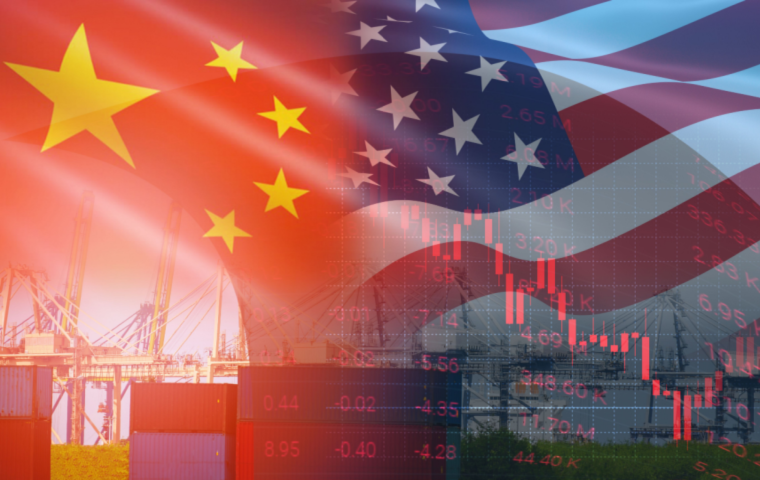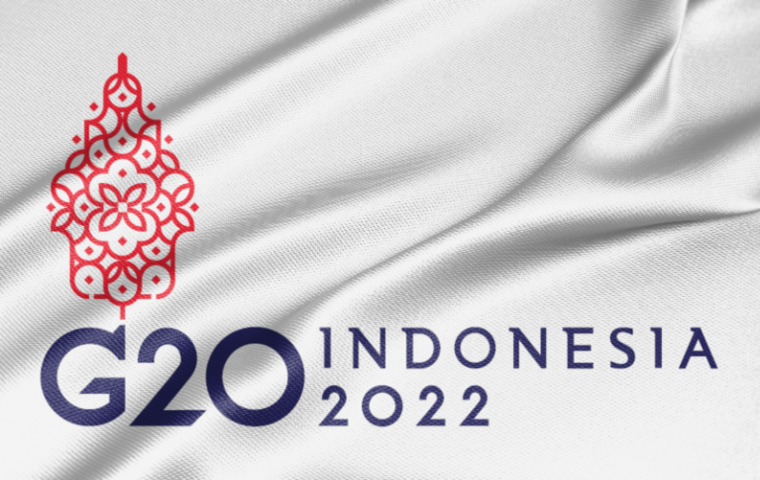The Delusional Sense of Crisis and “Solidarity”: Can Xi Face Real-World Challenges? (#1)
Related Articles

With governance and mobilization extending to every corner of basic society, Xi Jinping’s rule is likened to a dynasty. Heading for the goals of 2049 and 2035, it pursues further “solidarity” while eliminating non-conforming elements. What are its logic, methods, and challenges involved, and how will the future Japan-China relations be?
At the 20th Communist Party Congress, held in October 2022, Xi secured his third term in power. He did not become the party chairman, and the group leadership framework based on the general secretary system was maintained. Although the Xi Jinping Thought and the Two Establishes were not adopted in the party constitution, an overwhelming majority of top personnel were his aides, “reformers” focusing on the market economy were ousted, no women were in the Politburo, and diversity was lost in various ways. Besides not going for democratization, it seems even with economic growth, he did not approve of social diversity. In his speech, Xi advocated “solidarity” and said the “national security” system will be strengthened across all domains. The target is individual “minds,” with a focus on young people. Meanwhile, emphasis is still on economic development, but it is no longer Deng Xiaoping’s reform-and-opening-up type of development. It is replaced by Xi’s development with an emphasis on “common” prosperity, domestic demand, and domestic circulation. How should we view the Xi administration, now in its third term?
The “Extraordinary” Extension into the Third Term
Xi had his General Secretary tenure extended to a third term, but since no successor has been named, he is likely to push for a fourth term and remain in the position until 2032. This term extension is deemed “extraordinary.” Yet, we could say this was well prepared, since the tenure of a general secretary is not stated in the party constitution, the term limits for the presidency has been abolished with the 2018 constitutional amendment, and no successor was named during the 19th National Congress. Still, it is “extraordinary” because it goes against the trend of intra-party democracy established during the days of Jiang Zemin and Hu Jintao. In this trend, the general secretary’s term was defined as 10 years, and there was progress in “intra-party democracy” such as selecting the general secretary by voting (within certain limits). But Xi has made a drastic change.
When we look back on the history of People’s Republic of China, Xi’s extended terms may be nothing “extraordinary.” Both Mao Zedong and Deng Xiaoping have remained in power for a long time. Although Xi is sometimes likened to Mao, there are significant differences between the two administrations. Mao had also been the “president” of the Politburo at one time, and often said to be a dictator. Yet, as he sought to build socialism, Mao’s power always faced many contradictions from the practical group, including Liu Shaoqi and Deng Xiaoping, and the bureaucratic class that promoted nation building. That is why Mao tried to counter them by mobilizing regional party members and the youths. In this sense, Xi seems to have a more stable rule.
Also, as Yasuhiro Matsuda has already pointed out, Xi’s extended third term reminds us of Chiang Kai-shek winning his third term in 1960 in Taiwan. Under the Chinese Nationalist Party administration, the president’s tenure was limited to two terms (12 years) and Chiang Kai-shek could have let Chen Cheng take over. But in the end, Chiang Kai-shek amends the Temporary Provisions against the Communist Rebellion and is reelected for a third term. The “liberal” members within the Chinese Nationalist Party opposes this, but Chiang Kai-shek oppressed them. In 1966, going for his fourth term, he amends the Temporary Provisions twice to cement the authority of the president. However, by strengthening his authority, policy errors immediately affected his power. Since 1970, Taiwan’s isolation in the international community became a blow to the administration, and the democratization process began rolling.
If we rank the People’s Republic of China among the Chinese dynasties, a rule that extends to every corner of the country, in rural villages and urban areas, is truly epoch-making. The Qing Dynasty’s rule reached only the county capitals, and the Republic of China could not penetrate the base society however it wanted to. So, in comparison, the People’s Republic of China is a “dynasty” that thoroughly gripped society, by driving a wedge of governance into the base society through the three systems of party, military, and administration. Of course, the intolerant rule can be compared to that of the Ming dynasty.
However, even within the “dynasty” of the Chinese Communist Party (CCP), the Xi administration is exceptional in a way. By realizing a digital surveillance society and advocating “national security,” it is promoting governance and mobility of the base society at a degree and scale, unlike anything in the past. The Xi administration has achieved what is called an “individual-based governance.” Yet, as the term “a happy surveillance state” shows, the people accept surveillance because they can exchange personal data with convenience or abundance. How long can the Xi administration continue to provide such incentives? It must first tackle the COVID pandemic and economic development, but does Xi view the economy as a priority?
The 2035/2049 Goals and “Strong Sense of Crisis”

In his speech at the 20th Communist Party Congress, Xi talked in detail about the future policies based on the performance of the last 10 years. These were based on the assumption of aiming for the goals of making China a great modern socialist country by 2049 and modern socialist power by 2035, as stated in the 19th Party Congress. The 20th Central Committee from 2022 being a succession of the 19th, may have to do with not adopting the party chairman system and maintaining the general secretary system, i.e., collective leadership. However, Xi’s speech emphasized that achieving the self-set goals of 2049 and 2035 seems less promising. He stated that this is because of the “extraordinary” society and economy with the COVID pandemic in the five years of the 19th term, intensifying global competition, and interference by external forces. Such “strong sense of crisis” originates from staging self-set aggressive goals and when they seem unattainable, fanning “crisis.” The gist of Xi’s speech is, based on this sense of crisis, to call for stronger solidarity among the CCP, the people, and the whole Chinese nation. But what is expected of the Xi administration is addressing the series of issues.
Xi says China will become a “medium-level developed country” in economic terms by 2035. This probably means per capita GDP of about 20,000 USD—the next specific target for China, after it declared “eliminating” absolute poverty in 2021. However, there are concerns over who will oversee the economy and finance in Xi’s new administration. Li Keqiang, Wang Yang, Hu Chunhua, and other reformists who value the market economy have been purged. Although He Lifeng remains in the Politburo, it is uncertain whether he can function as a substitute for Vice Premier Liu He. The finance personnel are still unclear. If the new Xi administration puts too much weight on the distribution side of “common prosperity” or the domestic side of the “dual circulation,” it will instead suppress “development.” Even if Deng Xiaoping’s reform and opening up line is already abandoned, it does not mean economic growth can be ignored. In the latest reshuffling, the society must have also felt the Xi administration’s “sense of crisis,” while bewildered by the way it removed non-conforming elements. Inclusion of some oddities would allow diverse voices of society to be reflected. But the latest appointments show unification rather than diversity, as if declaring this is how “solidarity” should be.
Yet, there are considerable challenges to achieving the “solidarity.” First, the current unemployment rate of almost 20 percent, economic slowdown, and social dissatisfaction on the COVID measures. Xi will probably gather social resentment in advance through big data and “whole-process people’s democracy,” and eliminate non-conforming elements on grounds of “national security” through digital surveillance and governance networks installed across the basic society. That is exactly why all eyes are on the role of the Central Political and Legal Affairs Commission of the CCP. However, what does it cost to maintain a “happy surveillance society”? Also, considering that the reformers who valued market principles emphasized relations with the West for economic development, bold cooperation and improved relations with the Western countries are unlikely in the current situation.
Second is the delay in generation turnover. In the latest reshuffling, there are four “new faces,” the Politburo has no civilians other than Xi, and virtually no naming of a successor. This made Xi more likely to remain as the general secretary for the next 10 years. The customary age limit of 68 was practically abolished, and the intra-party democracy since the time of Jiang Zemin and Hu Jintao has retreated significantly in terms of personnel matters. Generation turnover has been delayed and the seventh generation, those born in the 1970s, were not included in the Politburo. It seems as if Xi has surrounded himself with the Cultural Revolution generation. This may be a distrust of the generations that have not gone through that experience. This trait also seemed visible in Xi’s speech, as he focused on the young generation and implied strengthening ideological education, such as arming them with CCP logic. But would people accept such attempts to remove the social diversity that accompanies economic development?
Third is that the new administration’s “solidarity” targets an extremely wide range, spanning across CCP members, people in China, and the Chinese nation. This point deeply relates to the Taiwan issue. Xi’s speech shows no major change in the wording referring to the Taiwan issue. He has already mentioned armed invasion in January 2019. The only change is clarifying that, “This is directed solely at interference by outside forces and the few separatists seeking ‘Taiwan independence’ and their separatist activities.” I guess “outside forces” refer to the U.S. and Japan. Taiwan unification has been Beijing’s long-held desire, and it does not hesitate to use force to achieve this. That is why China has steadily reinforced its military power. Taiwan’s Ministry of National Defense also claims it will have an equivalent military buildup by 2025.
Yet, in rhetoric, the key in Beijing’s Taiwan policy is to “win without a fight” by 2049. Beijing deems the Taiwanese as part of the Chinese nation. Thus, it assumes they share the dream of the “great rejuvenation of the Chinese nation.” So, in theory, Beijing aims to incorporate Taiwanese society. In other words, Beijing will continue to add military pressure, infiltrate the society with cyberattacks and disinformation, disrupt Taiwanese society and the Tsai Ing-wen administration, and continuously impose economic sanctions to force the entire Taiwanese society to abandon independence and the status quo and move toward unification. These pressures are likely to intensify in the future.
Yet, it is hard to imagine such policies will make Taiwanese society head toward unification. Rather, depending on who will become Tsai’s successor at the 2024 general election, Taiwan may adopt a far more “hardline” policy toward China. The U.S. presidential election is due the same year, and if former President Trump is reelected, the situation will change dramatically. Meanwhile, even the “win without a fight” policy needs achievements. If Xi is to continue as the general secretary for the next 10 years, he is in charge before the year 2035, the halfway point until 2049, and will have to have something to show by then. At that point, if Xi feels “without a fight” Taiwan policy does not work, he could further intensify military pressure or take limited military action.
Will the CCP members, the people of China, and the Chinese nation share the same dream as Xi? Upon finding the discrepancies, can Beijing accept the fact, or would it continue to eliminate “others”?
Continues in #2




